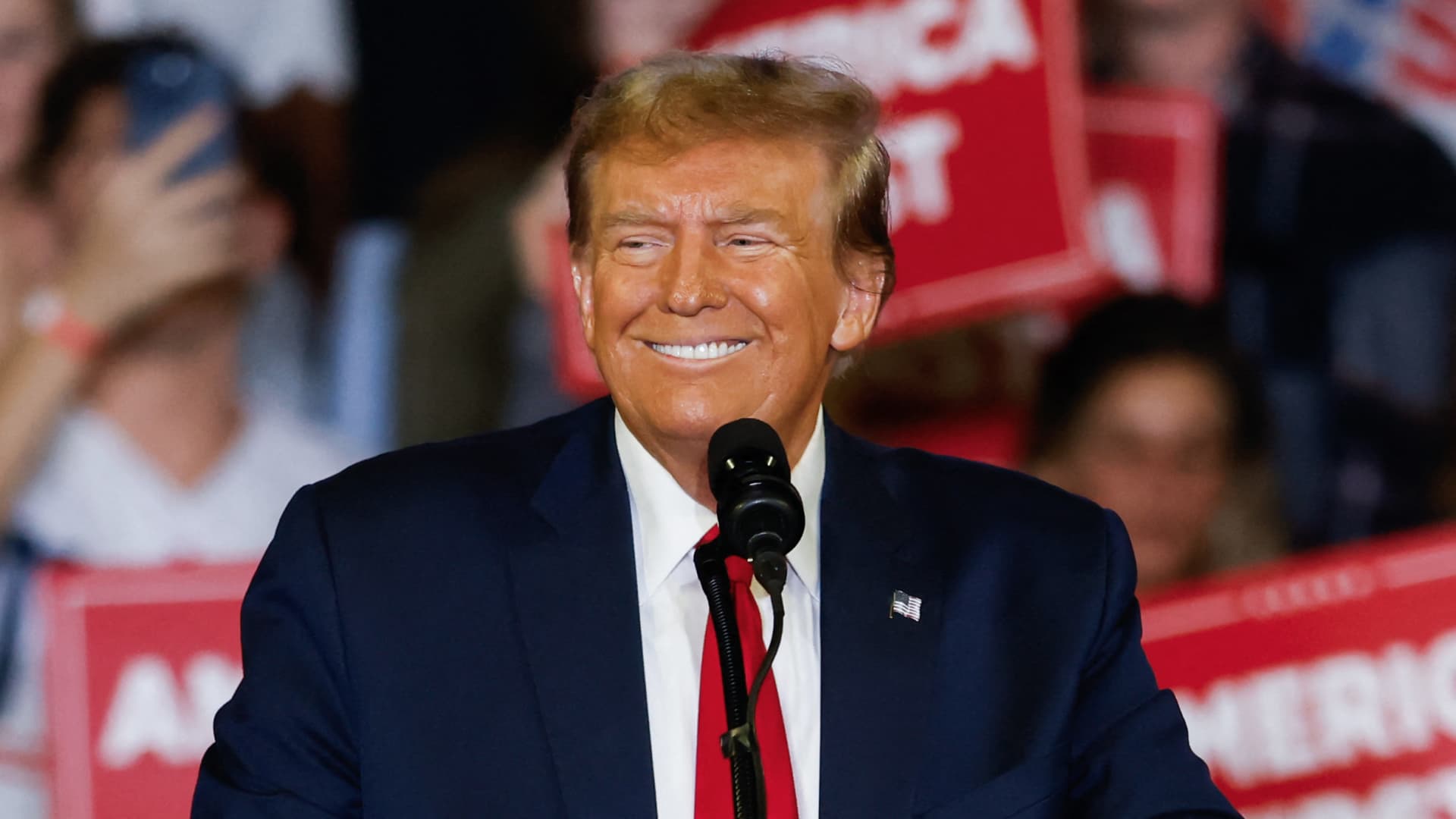
Former US President and 2024 presidential hopeful Donald Trump speaks at a “Get Out the Vote” Rally in Conway, South Carolina, on February 10, 2024.
The Supreme Court on Monday unanimously reversed the Colorado court ruling that barred former President Donald Trump from appearing on the state’s Republican presidential primary ballot because of a provision in the U.S. Constitution related to people who engage in insurrection.
The Supreme Court’s ruling means that no other state can bar Trump — or any other candidate from now on — from a presidential ballot or election for Congress by invoking the insurrection clause in the Constitution’s 14th Amendment.
Colorado was the first of three states to block Trump from a primary ballot due to his alleged incitement of the Jan. 6, 2021, riot at the U.S. Capitol, which distrupted the confirmation of President Joe Biden’s Electoral College victory over the incumbent Trump.
“We conclude that States may disqualify persons holding or attempting to hold state office,” the ruling said. “But States have no power under the Constitution to enforce Section 3 with respect to federal offices, especially the Presidency.”
“For the reasons given, responsibility for enforcing Section 3 against federal officeholders and candidates rests with Congress and not the States,” the ruling said. “The judgment of the Colorado Supreme Court therefore cannot stand.”
Trump, who is the clear favorite to win the GOP presidential nomination, in a Truth Social post reacting to the ruling wrote, “BIG WIN FOR AMERICA!!!”
The decision, which means votes he garners on Tuesday’s ballot will count for the former president, was not a surprise.
During oral arguments in the case on Feb. 8, many of the court’s nine justices appeared skeptical of the Colorado Supreme Court’s rationale in and process in its December decision disqualifying Trump from the ballot.
“I think that the question that you have to confront is why a single state should decide who gets to be president of the United States,” Justice Elena Kagan, one of the court’s progressive members, said during the hearing to a lawyer for the six Colorado voters who sought Trump’s disqualification.
But in a concurring opinion Monday, Kagan and the only other liberals on the court, Sonya Sotamayor and Ketanji Brown Jackson, wrote that they disagreed with the finding by five conservative justices that “a disqualification for insurrection can only occur when Congress enacts a particular kind of legislation pursuant to Section 5 of the Fourteenth Amendment.”
“In doing so, the majority shuts the door on other potential means of federal enforcement,” the trio wrote. “We cannot join an opinion that decides momentous and difficult issues unnecessarily, and we therefore concur only in the judgment.”
Justice Amy Coney Barrett, a conservative, in her own concurring opinion, agreed with the three liberals that the case did not require the Supreme Court to rule that only congressional legislation could enforce the insurrection clause.
“This suit was brought by Colorado voters under state law in state court,” Barrett wrote. “It does not require us to address the complicated question whether federal legislation is the exclusive vehicle through which Section 3 can be enforced.”
But Barrett added that, “In my judgment, this is not the time to amplify disagreement with stridency.”
“The Court has settled a politically charged issue in the volatile season of a Presidential election,” she wrote. “Particularly in this circumstance, writings on the Court should turn the national temperature down, not up.”
“For present purposes, our differences are far less important than our unanimity: All nine Justices agree on the outcome of this case. That is the message Americans should take home.”
Monday’s ruling reverses decisions by two other states, Maine and Illinois, which acted after the Colorado Supreme Court, to bar Trump from their primary ballots.
Source: www.cnbc.com



